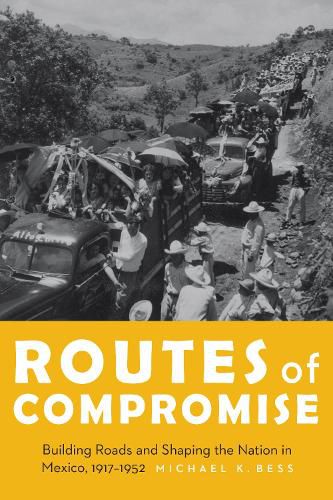Readings Newsletter
Become a Readings Member to make your shopping experience even easier.
Sign in or sign up for free!
You’re not far away from qualifying for FREE standard shipping within Australia
You’ve qualified for FREE standard shipping within Australia
The cart is loading…






In Routes of Compromise Michael K. Bess studies the social, economic, and political implications of road building and state formation in Mexico through a comparative analysis of Nuevo Leon and Veracruz from the 1920s to the 1950s. He examines how both foreign and domestic actors, working at local, national, and transnational levels, helped determine how Mexico would build and finance its roadways.
While Veracruz offered a radical model for regional construction that empowered agrarian communities, national consensus would solidify around policies championed by Nuevo Leon’s political and commercial elites. Bess shows that no single political figure or central agency dominated the process of determining Mexico’s road-building policies. Instead, provincial road-building efforts highlight the contingent nature of power and state formation in midcentury Mexico.
$9.00 standard shipping within Australia
FREE standard shipping within Australia for orders over $100.00
Express & International shipping calculated at checkout
In Routes of Compromise Michael K. Bess studies the social, economic, and political implications of road building and state formation in Mexico through a comparative analysis of Nuevo Leon and Veracruz from the 1920s to the 1950s. He examines how both foreign and domestic actors, working at local, national, and transnational levels, helped determine how Mexico would build and finance its roadways.
While Veracruz offered a radical model for regional construction that empowered agrarian communities, national consensus would solidify around policies championed by Nuevo Leon’s political and commercial elites. Bess shows that no single political figure or central agency dominated the process of determining Mexico’s road-building policies. Instead, provincial road-building efforts highlight the contingent nature of power and state formation in midcentury Mexico.